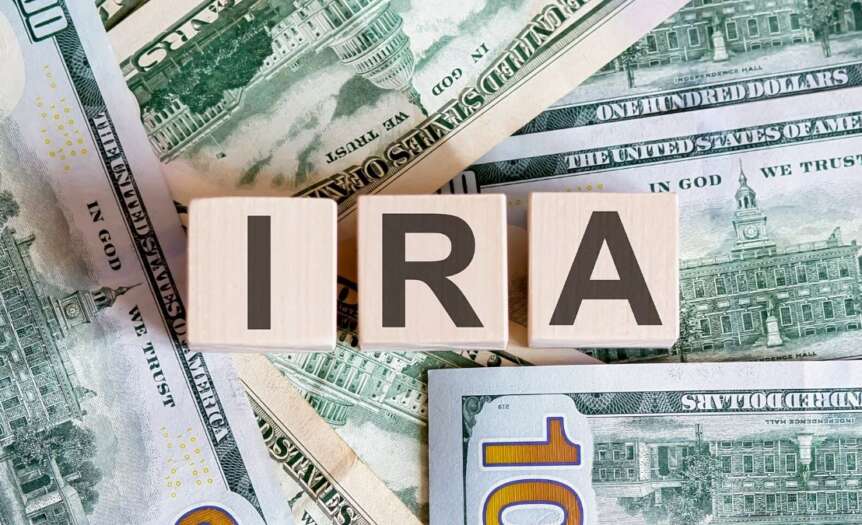Learning how to plan for your retirement and fund your self-directed IRA can be challenging, but it’s for the best. It’s not a topic taught in school, so we must educate ourselves and seek advice from financial advisors to ensure we’re doing things correctly. However, we should also know what to steer clear of when planning our retirements and setting up our IRA accounts. Here are five mistakes to avoid with a self-directed IRA.
Lacking Due Diligence
Having the freedom to invest in your choice of assets comes with the responsibility to do your due diligence on your investment. It’s up to you to make the appropriate decisions and understand the different ways you can lose money on a specific investment.
Making Transactions With an Disqualified Person
You, your spouse, direct ascendants or descendants, and their spouse are all considered disqualified persons. This means your IRA cannot interact with them directly. The IRS prohibits transactions with disqualified people, which could therefore have serious consequences.
Incorrectly Titling Investment Documents
When you invest in a noncash asset with your self-directed IRA, your IRA account is the owner of that investment. Therefore, correctly titling your investment documents is essential, and it will save you from lawsuits and stress.
Making Prohibited Transactions
The most common mistake to avoid with a self-directed IRA is making prohibited transactions. Lending money to a disqualified person, receiving money for managing a property that an IRA owns, spending the night in a property that the IRA holds, and more can lead to hefty consequences.
The most severe consequence is that you could lose your account, in which case your money would be distributed. That money would then be taxable, and if you’re under 59 years old, you would have to pay the 10 percent early withdrawal penalty.
Not Giving Yourself Enough Time To Fund Your Account(s)
Investors often wait until the last minute to begin funding their accounts before investing. However, the process doesn’t happen overnight, so you should take your time to allow your account to build over time.










 Deering Estate
Deering Estate
 Massage Envy South Miami
Massage Envy South Miami
 Calla Blow Dry
Calla Blow Dry
 My Derma Clinic
My Derma Clinic
 Sushi Maki
Sushi Maki
 Sports Grill
Sports Grill
 The Healthy Kitchen
The Healthy Kitchen
 Golden Rule Seafood
Golden Rule Seafood
 Malanga Cuban Café
Malanga Cuban Café

 Kathleen Ballard
Kathleen Ballard
 Panter, Panter & Sampedro
Panter, Panter & Sampedro
 Vintage Liquors
Vintage Liquors
 The Dog from Ipanema
The Dog from Ipanema
 Rubinstein Family Chiropractic
Rubinstein Family Chiropractic
 Your Pet’s Best
Your Pet’s Best
 Indigo Republic
Indigo Republic




 ATR Luxury Homes
ATR Luxury Homes


 2112 Design Studio
2112 Design Studio
 Hamilton Fox & Company
Hamilton Fox & Company
 Creative Design Services
Creative Design Services
 Best Pest Professionals
Best Pest Professionals
 HD Tree Services
HD Tree Services
 Trinity Air Conditioning Company
Trinity Air Conditioning Company
 Cisca Construction & Development
Cisca Construction & Development
 Mosquito Joe
Mosquito Joe
 Cutler Bay Solar Solutions
Cutler Bay Solar Solutions


 Miami Royal Ballet & Dance
Miami Royal Ballet & Dance
 Christopher Columbus
Christopher Columbus
 Pineview Preschools
Pineview Preschools
 Westminster
Westminster
 Carrollton
Carrollton
 Lil’ Jungle
Lil’ Jungle
 Frost Science Museum
Frost Science Museum
 Palmer Trinity School
Palmer Trinity School
 South Florida Music
South Florida Music
 Pinecrest Orthodontics
Pinecrest Orthodontics
 Dr. Bob Pediatric Dentist
Dr. Bob Pediatric Dentist
 d.pediatrics
d.pediatrics
 South Miami Women’s Health
South Miami Women’s Health

 The Spot Barbershop
The Spot Barbershop
 My Derma Clinic
My Derma Clinic




 Miami Dance Project
Miami Dance Project

 Rubinstein Family Chiropractic
Rubinstein Family Chiropractic
 Indigo Republic
Indigo Republic

 Safes Universe
Safes Universe
 Vintage Liquors
Vintage Liquors
 Evenings Delight
Evenings Delight





 Atchana’s Homegrown Thai
Atchana’s Homegrown Thai
 Baptist Health South Florida
Baptist Health South Florida

 Laser Eye Center of Miami
Laser Eye Center of Miami
 Visiting Angels
Visiting Angels
 OpusCare of South Florida
OpusCare of South Florida

 Your Pet’s Best
Your Pet’s Best





 HD Tree Services
HD Tree Services
 Hamilton Fox & Company
Hamilton Fox & Company


 Creative Design Services
Creative Design Services